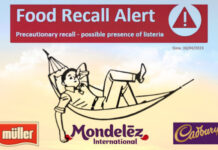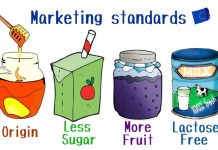The so-called climate decree (DL 14.10.19, No. 111), in force since 15.10.19, introduces in Article 7 some ‘measures to encourage bulk or draught products‘. (1) Incentives and rules to follow follow next.
Incentives for the sale of bulk and draught products, objective and target audience
Incentives to sell bulk and draught products aspire to promote new ways of consuming food and detergent products. To address the waste hierarchy-the so-called Lansink ladder, the basis of thecircular economy-from its first rung. Reduce. Reduce the production of disposable packaging and containers, where not essential for health needs, by discontinuing their use.
Recipients of the incentives are‘neighborhood and medium-sized business operators.’ (2) Namely:
– Neighborhood businesses, with sales area
<150 m2, in municipalities with a resident population <10,000, and
<250 m2, in municipalities with a resident population >10,000,
– medium-sized establishments, having sales area
<1,500 m2, in municipalities with <10,000 residents and
<2,500 m2, in municipalities with larger populations.
Large-scale establishments were also eligible for the incentive. Thanks to special amendment approved by the Senate on 21.11.19, when converting the decree law.
Conditions for access to incentives
Businesses will be eligible for ‘a non-repayable financial contribution equal to the expenditure incurred and documented to a maximum amount of 5,000 euros each,’ subject to the following conditions:
A) ‘equip spaces dedicated to the sale to consumers of food and detergent products, in bulk or on tap,’ or open new stores that provide exclusively for the sale of bulk products,
B) shall not offer disposable containers to package the said products. Instead, they can offer reusable containers and even allow the use of customer-owned ones, as long as they are clean and suitable for food use,
C) maintain such sales activity for a minimum period of three years, under penalty of revocation of the grant.
Methods of access and available resources
The grant will be ‘paid according to the order in which eligible applications are submitted, with a total limit of 20 million euros for each of the years 2020 and 2021, until the aforementioned resources are exhausted.’
The modalities for obtaining the grant as well as for the verification even later of its conditions are set ‘by decree of the Minister of the Environment and the Protection of Land and Sea, in agreement with the Minister of Economic Development and after consultation with the Unified Conference, within sixty days of the effective date of this decree‘ (15.12.19).
Food safety and MOCAs
Preparing a business establishment to sell food in bulk postulates a review of good hygiene practices and the HACCP manual. (4) As part of the self-control system aimed at ensuring food safety.
MOCAs-materials and items intended to come into contact with food-must in turn come with appropriate Material Safety Data Sheets, to be recorded in the Annex to the HACCP Manual. To ensure effective compliance with current regulations of both dispensers and reusable containers.
Consumer information on bulk products
The sale of bulk food products, it is recalled, is subject to the consumer information rules set out in Leg. 231/17. For details, please refer to the previous article on this topic. (5)
The labeling of detergents is in turn regulated by Regulation (EC) No. 648/04 as amended. (6) For the European eco-label, so-called Ecolabel, we refer instead to Regulation (EU) No. 66/10. (7)
Dario Dongo
Notes
(1) See Decree Law No. 111, 14.10.19. ‘Urgent measures to comply with the obligations under Directive 2008/50/EC on air quality and extension of the deadline under Article 48, paragraphs 11 and 13, of Decree-Law No. 189, converted, with amendments, by Law Dec. 15, 2016, no. 229‘, (OJ General Series No. 241 of 14-10-2019)
(2) Pursuant to Leg. 31.3.98 n. 114(Reform of regulations relating to the trade sector), Article 4, paragraph 1, letters ‘d’ and ‘e’
(3) The operator may in any case refuse to use containers deemed unfit from a sanitation standpoint, according to amendment adopted in the Senate on 21.11.19
(4) On the simplification of HACCP for micro enterprises (<2 mln € turnover and <10 employees), see https://www.greatitalianfoodtrade.it/idee/igiene-nei-ristoranti-l-abc
(5) See also the free ebook ‘1169 Penalties. Reg. EU 1169/11. Food news, inspections and penalties‘,
(6) See reg. EC 648/04 ‘on detergents‘ as amended. Consolidated text at https://eur-lex.europa.eu/legal-content/IT/TXT/?qid=1576365649768&uri=CELEX:32004R064
(7) See reg. EC 66/10 ‘on the EU Ecolabel‘ as amended. Consolidated text at https://eur-lex.europa.eu/legal-content/IT/TXT/?qid=1576366666824&uri=CELEX:32010R0066
Dario Dongo, lawyer and journalist, PhD in international food law, founder of WIISE (FARE - GIFT - Food Times) and Égalité.








